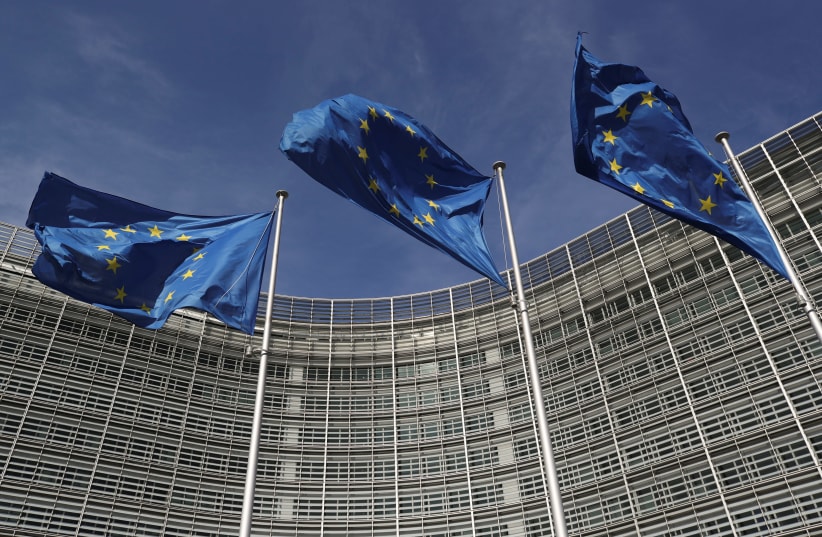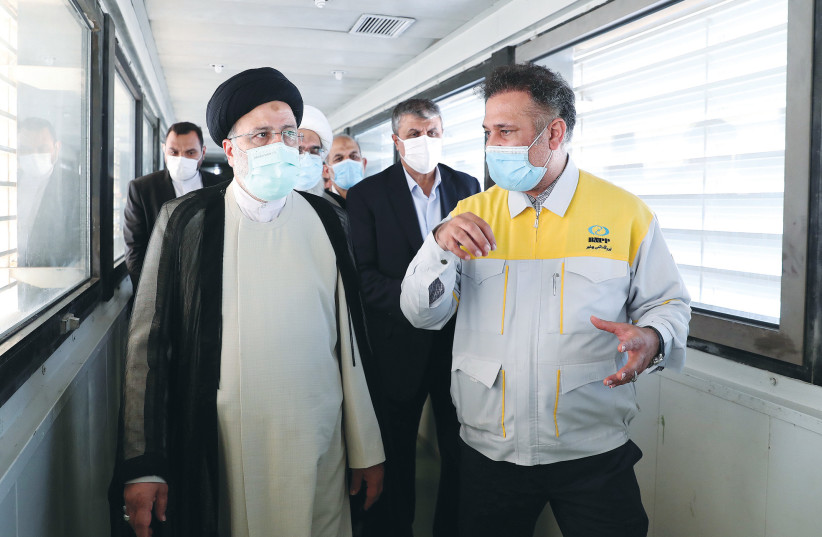The European Union is not thinking about a “Plan B” if diplomacy with Iran fails, EU Foreign Policy Chief Josep Borrell said on Friday in Washington, as opposed to a US statement that “every option” is on the table.
“It’s time to go back to the negotiating table. And I don’t want to think about Plan Bs because no... Plan B that I could imagine would be a good one,” Borrell said.
Iran walked away in June from indirect talks with the United States in Vienna on both sides returning to compliance with the deal, under which Tehran curbed its nuclear program in return for economic sanctions relief. Iranian President Ebrahim Raisi has so far refused to resume those negotiations.
Former US President Donald Trump withdrew the US from the deal in 2018 and reimposed sanctions on Iran. Since then, Tehran has been rebuilding its stockpiles of enriched uranium, refining it to higher levels of purity and installing advanced centrifuges to speed up the enrichment process.
Western diplomats have said they are concerned Tehran’s new negotiating team – under a president known as an anti-Western hardliner, unlike his pragmatist predecessor – may make new demands beyond the scope of what had already been agreed.
Borrell’s comment against a Plan B came in contrast with remarks US Secretary of State Antony Blinken made two days earlier that the US “will look at every option to deal with the challenges posed by Iran."
Blinken, who was speaking at an event with Foreign Minister Yair Lapid and Emirati Foreign Minister Abdullah bin Zayed marking a year since the Abraham Accords, normalization and peace agreements between Israel and four Arab nations, added that “We continue to believe that diplomacy is the most effective way to do that, but it takes two to engage in diplomacy, and we have not... seen from Iran a willingness to do that at this point.”
The Secretary of State met last week with the top diplomats from the EU, Israel, and the UAE and with Saudi Arabia’s Foreign Minister Prince Faisal bin Farhan Al Saud, with Iran as the top agenda item.
BORRELL SAID “time is pressing” for Iran to return to talks, and that the Islamic Republic's new government had had enough time to study the file and instruct its negotiating team.
The EU foreign policy chief indicated that not only is Tehran obfuscating on the question of when they will resume indirect talks with the US, but that Iran has not even committed to a time frame for preliminary negotiations it has asked to hold in Brussels.
“I am ready to receive them if needed,” Borrell said, adding that he did not think talks in Brussels were absolutely necessary but that he had to be willing to be somewhat “patient on this issue because we cannot afford to fail.”
EU political director Enrique Mora, the chief coordinator for the talks, was in Tehran on Thursday to meet members of Iran’s nuclear negotiating team, four months after discussions broke off between Iran and world powers.
After Mora’s visit, Iran’s Foreign Ministry said it would hold talks in the coming days with the EU in Brussels.
Mikhail Ulyanov, Russia’s ambassador to the UN nuclear watchdog who tracks the nuclear talks for Moscow, suggested that Iran would be better served returning to Vienna.
“Isn’t it more prudent to discuss the texts with participants in the #ViennaTalks?” he asked on Twitter.
France’s Foreign Ministry spokeswoman Anne-Claire Legendre said negotiations should resume immediately from where they left off in June to reach a deal quickly.
Lapid called last week in Washington for the world to take a stand against the mullahs’ regime, which he warned was “dragging its heels” to advance its nuclear program while the parties to the 2015 nuclear deal wait to return to talks.
“If a terror regime is going to acquire a nuclear weapon, we must act. We must make clear that the civilized world won’t allow it,” he said.
If diplomacy between world powers and Iran fails, “other options will be on the table,” Lapid said, later adding: “When we say other options, I think everyone understands here, in Israel, in the Emirates and in Tehran, what it means.”

